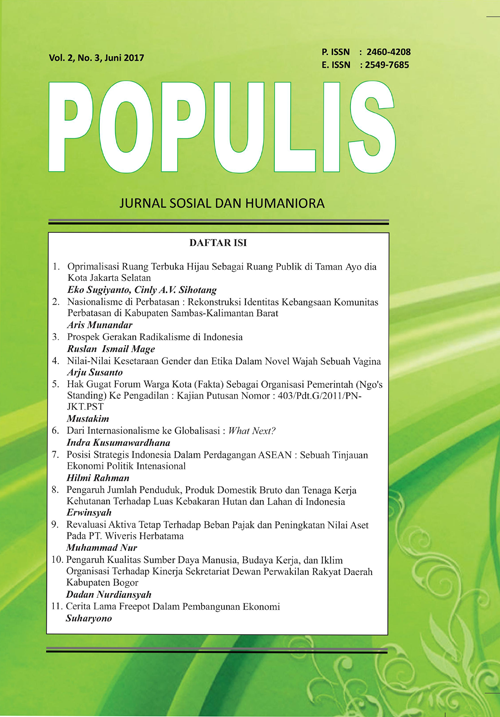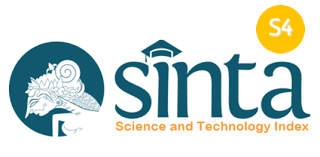POSISI STRATEGIS INDONESIA DALAM PERDAGANGAN ASEAN: SEBUAH TINJAUAN EKONOMI POLITIK INTERNASIONAL
DOI:
https://doi.org/10.47313/pjsh.v2i1.277Abstract
Regionalism in international relations has been a contemporary phenomenon since the world entered its 20th century. In Southeast Asia, Indonesia as one member of ASEAN has managed consolidating the country’s position in trade cooperation and competition. With setting up its economic community of MEA in 2015, ASEAN has focused on trade sector cooperation. Given the strategic position of Indonesia where two third of ASEAN demands for goods and services are supplied by Indonesia, the setting up of ASEAN economic community (MEA) is crucial for individual members to compete and cooperate. How would Indonesia take this opportunity? The paper discusses the factors that need more attention in such areas as government regulation, technology, competitiveness, and innovation. While natural resources and Indonesia’s strategic position in terms of geography and trade route are there to exist, those factors will determine whether Indonesia will be the winner or the loser.
Keywords : regionalism, strategic factors, cooperation, competition, competitiveness.
References
Djafar Zainuddin. 1996. Teori Hubungan Internasional Memerlukan Paradigma Baru?. Jakarta : PT. Dunia Pustaka Jaya. Hal. 36
Dominick Salvatore, International Economics (New Jersey: Prentice Hall- Gale, 1997), 321.
Menuju ASEAN ECONOMIC COMMUNITY 2015. Departemen Perdagangan Republik Indonesia, hal. 74-78
ASEAN Economic Community Chartbook 2015
Jakarta : ASEAN Secretariat, April 2016.Pdf
Dag Einar Thorsen And Amund Lie, What is Neoliberalism?, Department of Political Sciencew University of Oslo.http://folk,uio.no/daget/what%2Ois%20NeoLiberalism%20Final.pdf. Diakses pada tanggal 22 Oktober 2016
Jiangyu Wang, “China,India and Regional Economic Integration in Asia: The Policy and Legal Dimensions,” (“makalah”) in Singapore Year Book of International Law (National University of Singapore, June 2006),
http://www.icrier.org/pdf/28march/28March07Afternoonday1/Wang_v1_rev30Nov06-pdf.pdf
Downloads
Published
Issue
Section
License
- Hak publikasi atas semua materi informasi yang tercantum dalam situs jurnal ini dipegang oleh dewan redaksi/editor dengan sepengetahuan penulis. Pengelola Jurnal akan menjunjung tinggi hak moral penulis.
- Aspek legal formal terhadap akses setiap informasi dan artikel yang tercantum dalam situs jurnal ini mengacu pada ketentuan lisensi Creative Commons Atribusi-NonCommercial-No Derivative (CC BY-NC-ND), yang berarti bahwa hanya dengan izin penulis, informasi dan artikel Jurnal BACA dapat didistribusikan ke pihak lain dengan tanpa merubah bentuk aslinya untuk tujuan non-komersial.
- Setiap terbitan Populis Jurnal Sosial dan Humaniora, baik cetak maupun elektronik, bersifat open access untuk tujuan pendidikan, penelitian, dan perpustakaan. Di luar tujuan tersebut, penerbit atau pengelola jurnal tidak bertanggung jawab atas terjadinya pelanggaran hak cipta yang dilakukan oleh pembaca atau pengakses.










